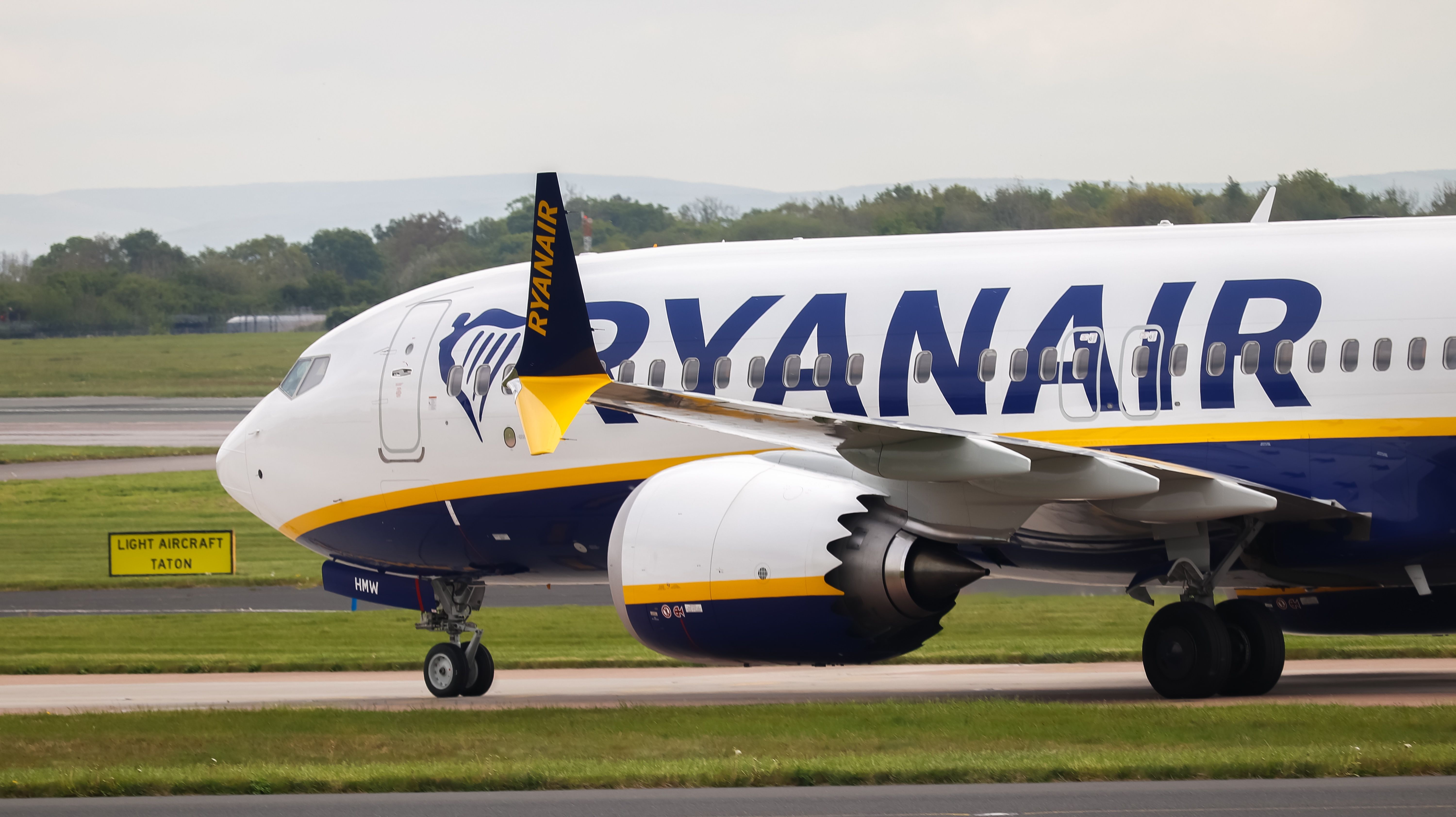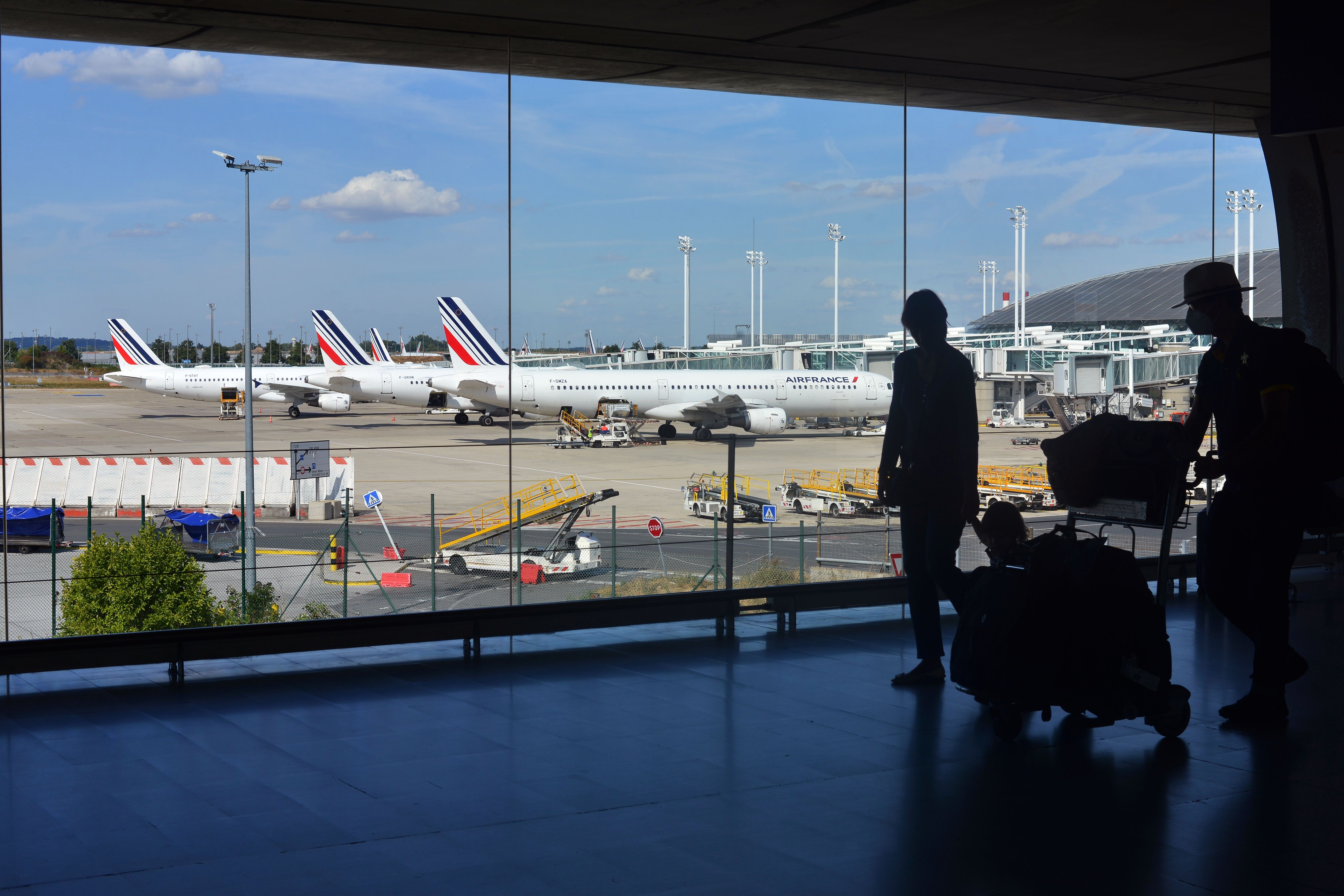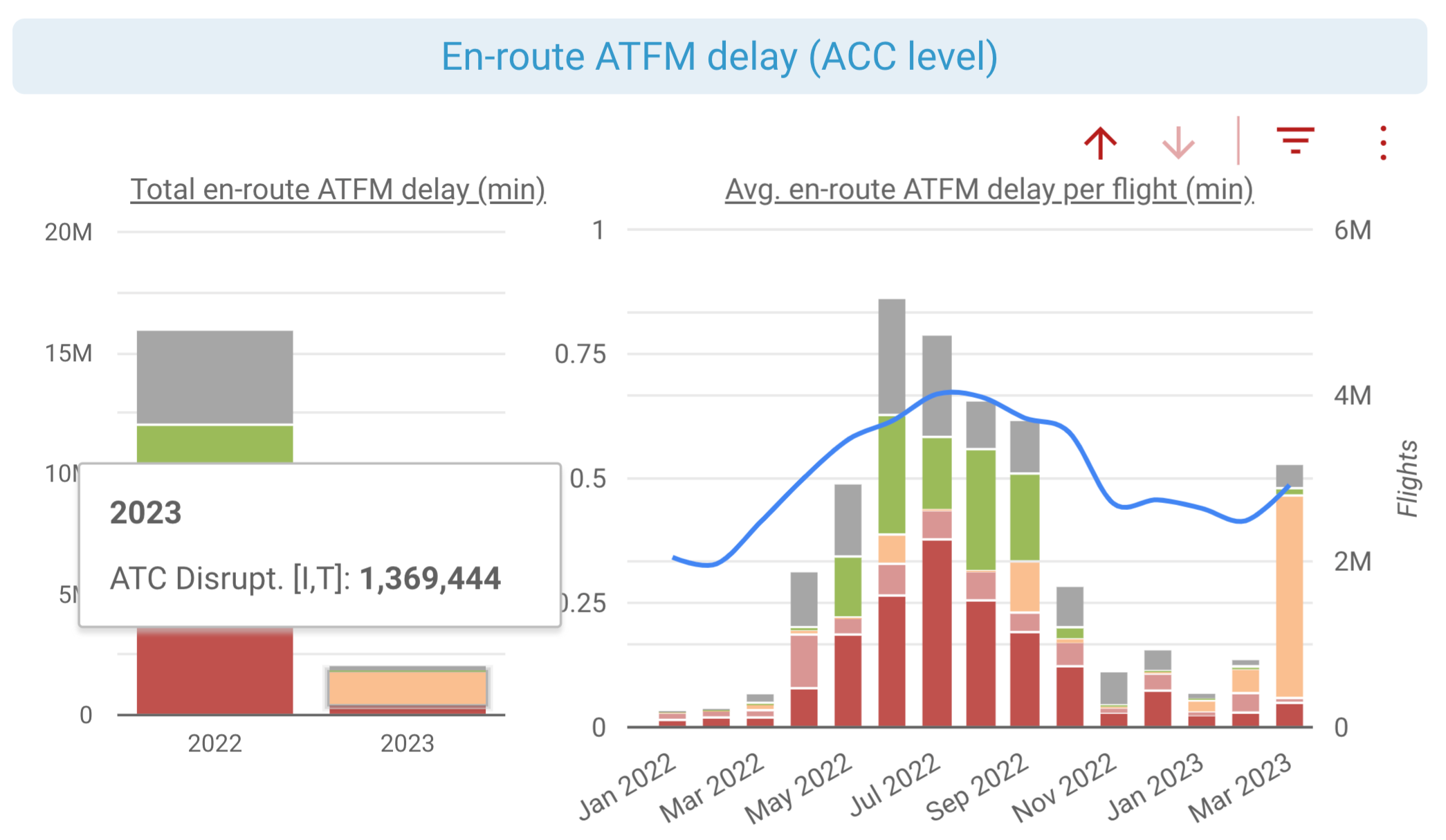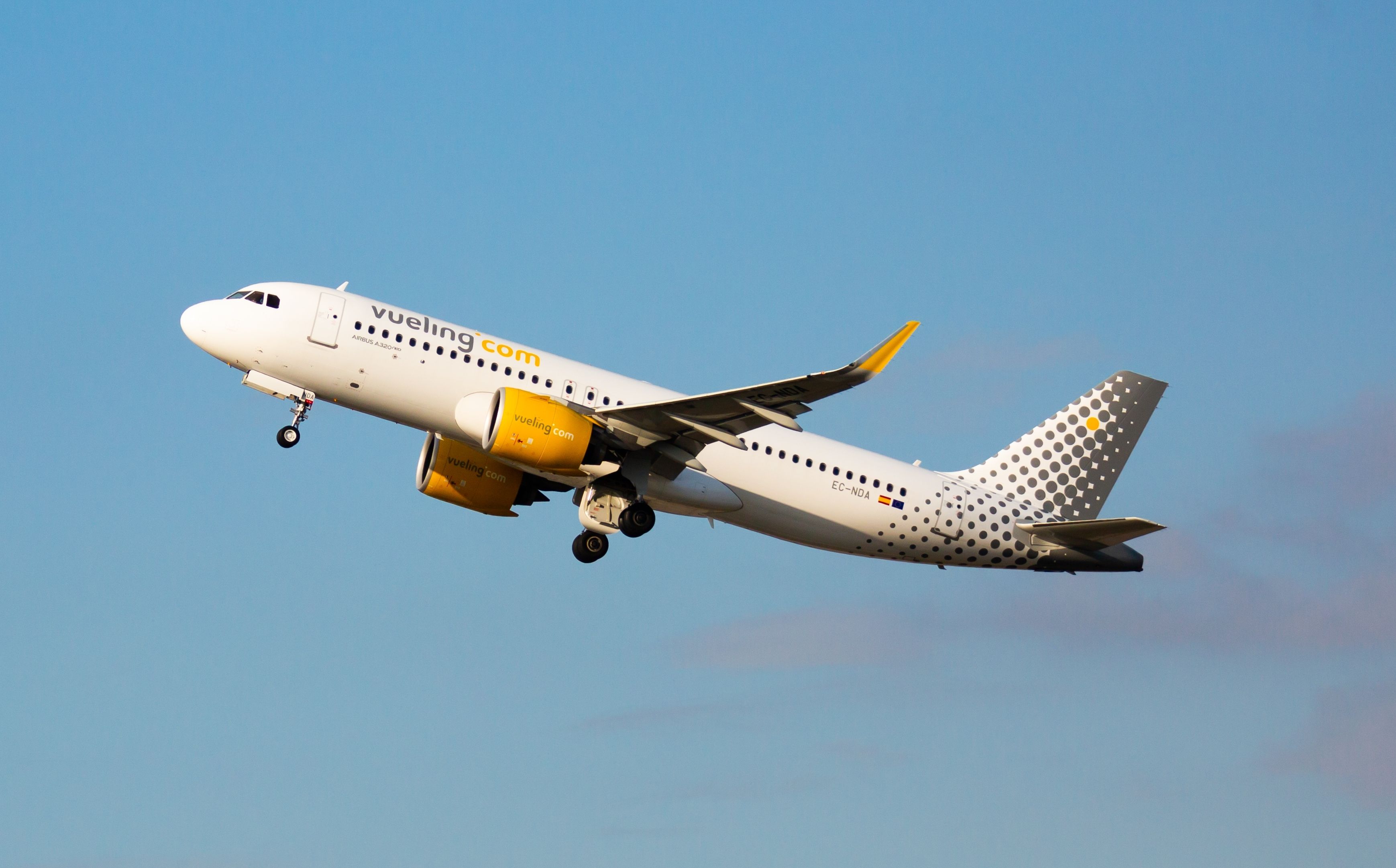Between March 1st and April 9th this year, there were 34 days with air traffic control strikes significantly affecting European air transport. Although air travel in France was primarily impacted, industrial action also affected Germany. While it is evident that strikes cause flight disruptions, such prolonged industrial action can also have a significant environmental impact.
What's the extent of the strike's impact?
Before understanding how strikes can harm the environment, the full extent of this year's industrial action must first be examined.
Number of flights affected
In the first three months of this year, an average of 3,300 flights departed or landed in France each day, including an estimated 800 domestic flights. Around 3,700 flights also passed through French airspace within the same period. And with approximately 23,000 flights per day in Europe in general, approximately 30% of daily European flights were likely impacted by the strikes in France.
Within this 30%, about 3% were domestic flights in France; 11% were international departures from and arrivals to France; 16% were overflights across France, and the remaining 70% were other flights. Across the 34 days of strikes this year, at least 237,000 flights to, from, or across France and Germany were impacted.
Cancelations and delays
Daily flight cancelation rates also increased by at least 37% compared to a typical operational day. And during the strike days in France, there were an average of 485 additional cancellations, of which 25% were overflights passing through French airspace.
Punctuality rates also decreased by about nine percentage points, with the delay increasing from 11 to 23 minutes on average. Flights arrived an average of 17 minutes later than scheduled, about six minutes of additional delay time than on a typical day without industrial action.
Aircraft on the ground
With punctuality rates declining, it's evident that the en-route ATFM delay - when the EUROCONTROL Network Manager holds an operational aircraft on the ground because of a lack of air traffic control capacity along its route - was four times higher compared to last year's industrial action period. The delay accounts for several contributing factors, but air traffic control disruptions accounted for the most, with 0.52 percentage points.
On the other hand, air traffic control capacity contributed 0.06 percentage points, and air traffic control staffing gave 0.01 percentage points. The remaining factors, such as weather, contributed 0.02 percentage points, and others, like airport or en-route disruptions, accounted for 0.06 percentage points.
Get all the latest aviation news right here on Simple Flying!
What's the impact on the environment?
But with more flights being canceled and generally affected, how did the industrial action in France impact the environment?
Additional kilometers flown
While cancelation rates were up, so were delay statistics, as airlines had to reroute and fly further than their usual route to avoid French airspace. Between March 7th and April 9th, an estimated additional 96,000 kilometers were flown each strike day.
Another example was on March 12th, when approximately 40 flights had to extend their typical flight path flown on a non-strike day, March 5th, by at least 370 kilometers to avoid getting caught in French airspace.
Additional fuel burnt
With flight paths extending by thousands of kilometers daily, it is no surprise that, with each strike day, airlines were burning an average additional 386 tons of fuel on top of what they would generally use for the routes flown.
The added fuel burn meant that airlines were also emitting more than 1,200 tons of additional carbon dioxide. In other words, if the European air traffic control strikes had not happened, flight times and paths would be much shorter, and the emissions produced would be far lower per day.
We'd love to see you on Instagram - follow us here!
Bottom line
Besides the millions of unfortunate passengers affected by the European air traffic control strike, the impact on airlines and the harsh effect on the environment highlight how the disruption in a single country can radiate out and negatively impact the European aviation industry as a whole.
Source: EUROCONTROL




